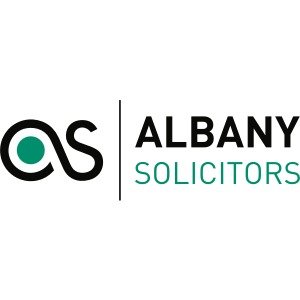Best Public-Private Partnerships (PPP) Lawyers in Bristol
Share your needs with us, get contacted by law firms.
Free. Takes 2 min.
List of the best lawyers in Bristol, United Kingdom
About Public-Private Partnerships (PPP) Law in Bristol, United Kingdom
Public-Private Partnerships, or PPPs, are long-term collaborative arrangements between public sector bodies and private sector companies to deliver public infrastructure or services. In Bristol, United Kingdom, PPPs have been used to develop roads, schools, hospitals, and even transport networks. The aim is to combine the resources, expertise, and efficiencies of the private sector with the accountability and public interest motivations of government authorities. The law around PPPs in Bristol is shaped by a complex mixture of UK legislation, EU-derived procurement frameworks, and specific local planning regulations. Successful PPPs remain crucial for sustainable economic development and improved public services throughout the Bristol area.
Why You May Need a Lawyer
Navigating Public-Private Partnerships involves managing complex legal agreements and regulatory frameworks. Here are common situations when legal advice is essential:
- Drafting, reviewing, and negotiating PPP contracts
- Understanding risk allocation between public and private partners
- Compliance with legal and regulatory obligations
- Dispute resolution between project partners
- Procurement and tendering processes, including challenges to awards
- Understanding tax implications and financial structuring
- Managing planning permissions and environmental assessments
- Advising on intellectual property and ownership of project outputs
- Ensuring ongoing compliance with performance monitoring and reporting requirements
Given the significant financial and reputational stakes, both public authorities and private companies work closely with specialist lawyers throughout the PPP lifecycle.
Local Laws Overview
Bristol, like all cities in the UK, operates within the national legal framework governing Public-Private Partnerships, but local policies also play an important role. The following are key legal elements relevant to PPP in Bristol:
- Public Contracts Regulations 2015: These set out rules for public procurement, requiring processes to be transparent, competitive, and fair.
- Local Government Act 2000: Empowers local authorities, like Bristol City Council, to form partnerships to improve local services.
- Infrastructure and Projects Authority (IPA) Guidance: Provides best practice guidance on structuring and delivering PPP projects.
- Bristol City Council Policies: Local planning, sustainability, and social value policies can influence PPP structuring and outcomes.
- Environmental Regulation: Projects must comply with stringent UK and local environmental standards.
- State Aid and Subsidy Control: Ensures public sector support remains compliant with post-Brexit UK subsidy rules.
Public sector liability, dispute resolution mechanisms, and ongoing performance monitoring are also shaped by national and local regulations applicable in Bristol.
Frequently Asked Questions
What is a Public-Private Partnership (PPP)?
A PPP is a contractual agreement between a government body and a private company to deliver projects or services traditionally provided by the public sector, such as infrastructure or public transport.
What types of projects in Bristol often use PPP arrangements?
Common projects include new buildings for schools or hospitals, transport improvements, renewable energy facilities, housing developments, and community regeneration schemes.
How are PPP contracts awarded in Bristol?
PPP contracts are generally awarded through an open procurement process governed by the Public Contracts Regulations 2015, ensuring transparency and fair competition.
What legal risks exist in a PPP project?
Risks include change of laws or policies, cost overruns, failure to meet performance benchmarks, disputes over contract terms, and complex financial arrangements. Legal advice is vital to identify and mitigate these risks.
Can a PPP project be challenged by unsuccessful bidders?
Yes, unsuccessful bidders can challenge the procurement process if they believe there was unfair treatment or non-compliance with relevant legislation or regulations.
How are disputes in PPP projects typically resolved?
Most PPP contracts include agreed mechanisms for dispute resolution, often involving negotiation, mediation, or arbitration before pursuing litigation in court.
What happens if a private partner in a PPP fails to fulfil its obligations?
The contract will usually include provisions for enforcement, penalties, or even termination. Legal action may be necessary to recover losses or reassign project responsibilities.
Are PPP projects in Bristol subject to environmental assessments?
Yes, all major PPP projects must comply with national and local environmental regulations, which typically require environmental impact assessments and ongoing monitoring.
How long do PPP contracts usually last?
PPP contracts often last from 15 to 30 years, depending on the nature, scale, and financing arrangements of the project.
Why should I consult a specialist PPP lawyer instead of a general solicitor?
PPP law involves unique contract structures, finance, public policy considerations, and risk management. A specialist lawyer ensures compliance with complex rules and helps protect your interests throughout the project lifecycle.
Additional Resources
If you require further information or support related to PPPs in Bristol, consider contacting or consulting the following:
- Infrastructure and Projects Authority (IPA)
- Bristol City Council Procurement and Legal Services
- Local Enterprise Partnerships (LEP) for the West of England
- Law Society of England and Wales
- UK Government Cabinet Office Guidance on Public-Private Partnerships
- UK Green Investment Bank
- Chartered Institute of Procurement and Supply (CIPS)
- Solicitors Regulation Authority (SRA) - for finding regulated legal professionals
Next Steps
If you are considering entering into, bidding for, or managing a PPP arrangement in Bristol, or if you are facing a legal issue relating to an ongoing PPP project, it is important to act promptly. Start by gathering all relevant documents, including contracts, procurement notices, and correspondence. Make a note of any deadlines or critical dates, especially where procurement challenges or legal disputes may arise.
Next, seek advice from a solicitor or law firm with expertise in Public-Private Partnerships and relevant local experience in Bristol. Most initial consultations will help you understand your legal position, options, and approximate costs involved. Having the right legal partner can make a significant difference in the success and resilience of your PPP project.
Remember, PPP projects are complex but can deliver wide-ranging benefits when managed with strong legal foundations and expert support.
Lawzana helps you find the best lawyers and law firms in Bristol through a curated and pre-screened list of qualified legal professionals. Our platform offers rankings and detailed profiles of attorneys and law firms, allowing you to compare based on practice areas, including Public-Private Partnerships (PPP), experience, and client feedback.
Each profile includes a description of the firm's areas of practice, client reviews, team members and partners, year of establishment, spoken languages, office locations, contact information, social media presence, and any published articles or resources. Most firms on our platform speak English and are experienced in both local and international legal matters.
Get a quote from top-rated law firms in Bristol, United Kingdom — quickly, securely, and without unnecessary hassle.
Disclaimer:
The information provided on this page is for general informational purposes only and does not constitute legal advice. While we strive to ensure the accuracy and relevance of the content, legal information may change over time, and interpretations of the law can vary. You should always consult with a qualified legal professional for advice specific to your situation.
We disclaim all liability for actions taken or not taken based on the content of this page. If you believe any information is incorrect or outdated, please contact us, and we will review and update it where appropriate.













